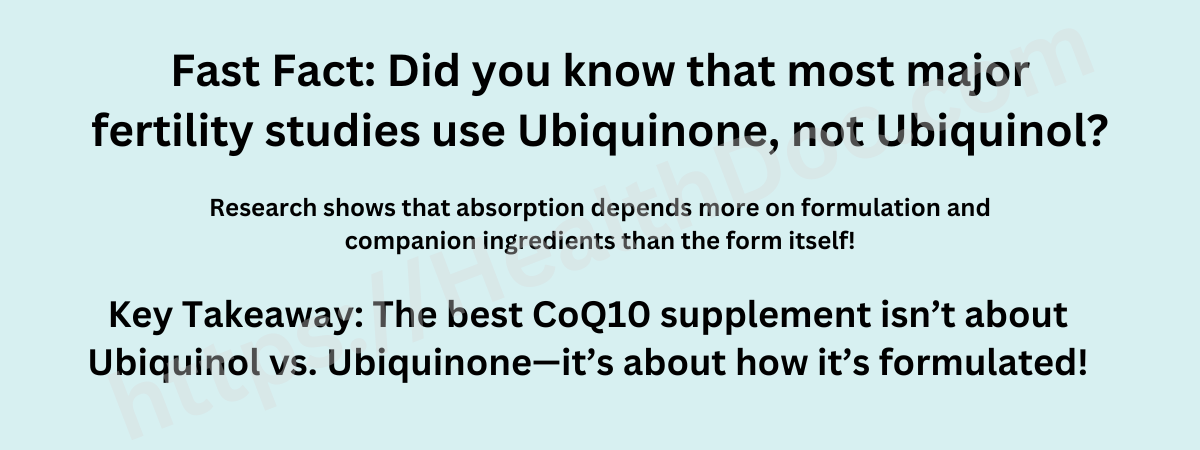Explore All Articles
Explore All Articles

Miscarriage is more common than many realize. While 10–20% of known pregnancies end in miscarriage, experts believe the actual number is significantly higher due to early pregnancy losses that go undetected.
For women over 35, the risk increases—primarily due to age-related declines in egg quality and chromosomal abnormalities.
So, can Coenzyme Q10 (CoQ10) help? This naturally occurring antioxidant is essential for cellular energy production and has been studied for its potential role in improving egg quality.
This article explores:
Before we dive into CoQ10’s role, it’s important to understand why miscarriages happen.
Egg quality is a critical factor—and it’s directly linked to mitochondrial function. This is where CoQ10 might help.

CoQ10 is a powerhouse nutrient involved in:

So, what does science say about CoQ10’s potential to reduce miscarriage risk?



Want to learn exactly how to take CoQ10, which form is best, and how to find a high-quality supplement?
Download our free CoQ10 User Guide for practical tips and expert-backed recommendations.
The guide includes detailed dosage recommendations, absorption tips, and supplement selection criteria to help you get the most out of CoQ10.

🔹 Possibly. While direct studies on miscarriage prevention are limited, CoQ10 has been shown to improve egg quality, reduce oxidative stress, and enhance mitochondrial function—all of which are linked to lower miscarriage risk.
🔹 CoQ10 fuels mitochondrial energy production in egg cells, helping them mature properly. It also acts as an antioxidant, protecting eggs from DNA damage that can lead to chromosomal abnormalities.
🔹 CoQ10 is generally considered safe and well-tolerated, but consult your doctor before taking any supplements during pregnancy.
🔹 Typical doses for fertility support range from 400 mg to 600 mg per day. Some IVF studies use up to 1200 mg per day, divided into smaller doses for better absorption.
🔹 At least 2 to 3 months. Eggs take about 90 days to mature, so consistency is key when supplementing with CoQ10.
🔹 CoQ10 may reduce the risk of chromosomal abnormalities by protecting eggs from oxidative damage, but it cannot guarantee normal chromosomes.
🔹 No strong evidence supports Ubiquinol being superior. Most major fertility studies use Ubiquinone, and research shows absorption depends more on formulation than the form itself.
🔹 Yes, some studies suggest it can. CoQ10 may improve egg quality, embryo development, and ovarian response—especially in women with low ovarian reserve or those over 35.
📥 Download our free CoQ10 User Guide for expert-backed tips on dosage, timing, and how to choose a high-quality supplement.
*Although I am a doctor, I am not your doctor. This information is not individualized health advice. Consult with a healthcare professional who knows you, your history, and your health goals before making any changes to your healthcare regimen.
Whether you are much interested in investing, our collection of articles is designed to educate and empower you.